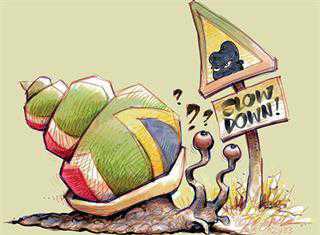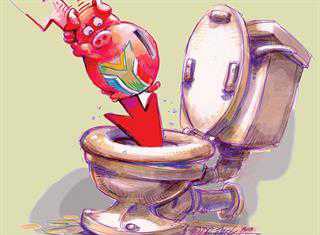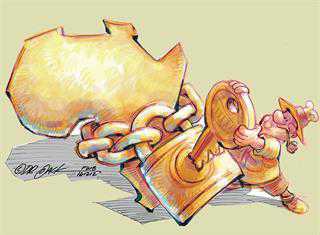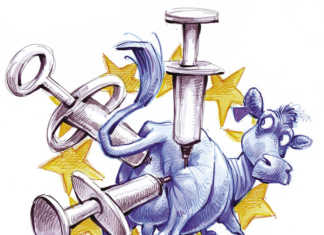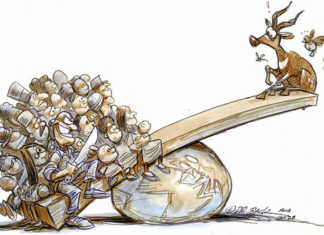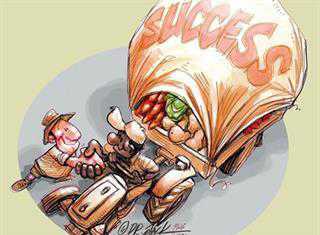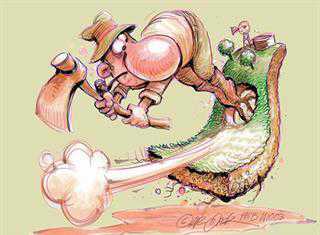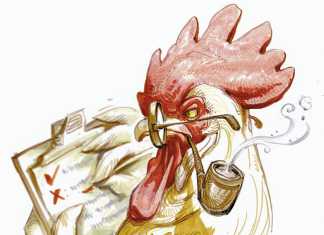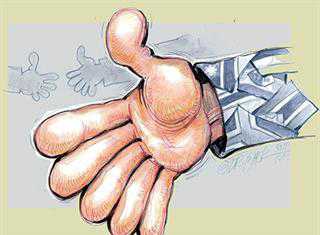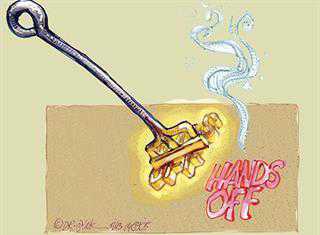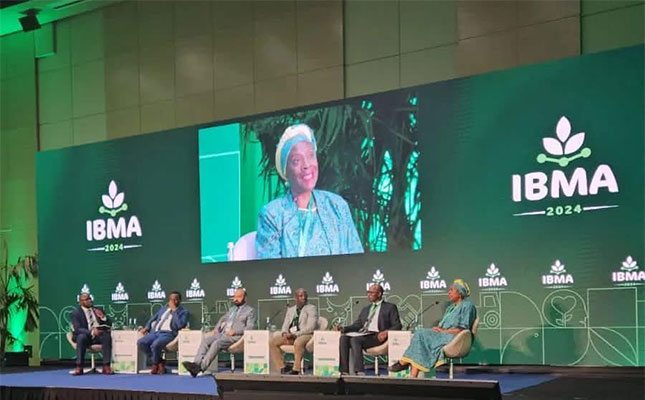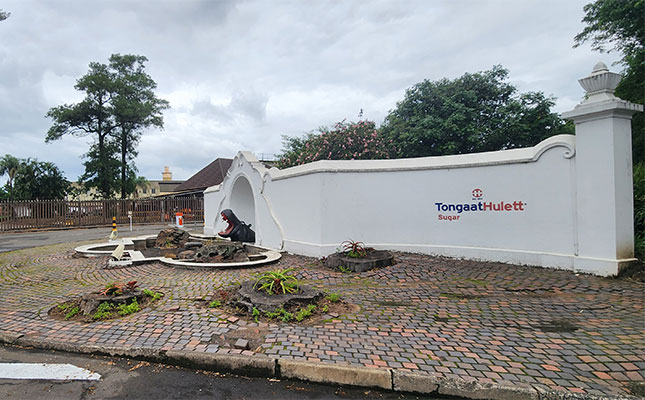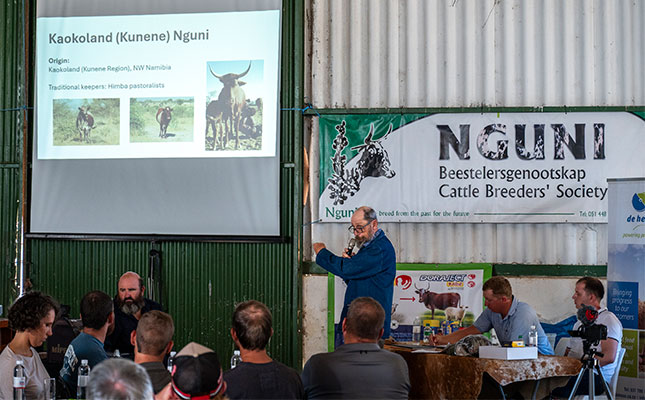We’re in the same team – Cyril Xaba
Cyril Xaba, KZN MEC for the provincial Department of Agriculture and Rural Development, facilitated an historic meeting in January between his department and KZN commercial commodity organisations. Here he presented his new strategy for agribusiness in the province.
Organic vs GM crops in Africa
GM crops are no instant solution for feeding Africa, but neither is pure organic farming. The solution lies somewhere in between. So says Dr Charlie Reinhardt, extraordinary professor in weed science at the University of Pretoria and dean of Villa Crop Protection’s Villa Academy.
Raising SA’s ‘speed limit’
Prof Ricardo Hausmann, director of the Center for International Development at Harvard University and Venezuela’s former minister of planning, looks at the economic challenges facing South Africa. He delivered this presentation at a recent symposium in Johannesburg.
Why credit ratings matter, even to farmers
When South Africa’s credit rating was left intact just before the festive season, a cautious sigh of relief reverberated throughout South Africa’s financial markets and government corridors. Why are credit ratings so crucial and what would a downward revision mean to farmers? Jaco Visser looks at the importance of these measures.
The keys to unlocking Africa’s food potential
To feed its own population of two billion by 2044, let alone become the world’s breadbasket, Africa will have to rely on commercial farmers. So says Brienne van der Walt, managing executive of Absa and Barclays Africa Agribusiness. In the same way, the success of land transformation in SA
will depend on whether it is done through commercial or small-scale farming.
Regulating antibiotic usage – Germany leads the way
The European Union is increasingly coming down hard on indiscriminate use of antibiotics in livestock production, posing many challenges for farmers. Speaking at EuroTier 2014 in Germany, Dr Hans-Joachim Götz, president of the German Federal Association of Practising Veterinary Surgeons, outlined a new systematic approach to the problem.
Man vs wildlife: a balancing act
Roelof Bezuidenhout reacts to a recent Collaborative Partnership on Sustainable Wildlife Management (CPW) fact sheet dealing with human impact on wildlife and its ecological fallout.
New Year messages for 2015
Leaders in South African agriculture look back on the achievements and challenges of 2014 while anticipating the demands and opportunities of the year ahead.
Empowering the small farmer
SA smallholder farmers have access to the best research, the most comprehensive supply of inputs, and the most sophisticated financial sector in Africa. Now is the time for them to wean themselves off government support and take charge of their future. Jaco Visser looks at ways to achieve this.
Farmers – time to wake up to the future
Dr Piet Croucamp, political analyst and Namibian sheep farmer, spoke to farmers at Agri Limpopo’s annual congress on agriculture in South Africa over the next 20 years.
Let’s grow SA’s agri sector!
At the Afasa congress in Pretoria earlier this year, agriculture minister Senzeni Zokwana made a strong case for sensible, ongoing discussions between stakeholders, and the return to a good work ethic in the public sector. These, he said, are important for effective transformation in agriculture.
The merits of mentorship scheme
The mentorship of new farmers is more than mere teaching – it is about building a relationship based on commitment. Agricultural economist at the University of Pretoria, Dr Fanie Terblanche, explains the challenging relationship between the mentor and mentee, and why many programmes succeed where others fail.
The future of game ranching
Does the future of game ranching depend on pure conservation principles, pure economics, or a blend of the two? Roelof Bezuidenhout explores the issue.
How far have we strayed from Madiba’s vision?
In a letter published in a previous issue of Farmer’s Weekly, former ANC MP Salam Abram expressed concern about the current land reform process. He expanded on this viewpoint at the recent TAU SA congress in Pretoria.
Are South Africa’s property rights at risk?
Retired judge, Antonie Gildenhuys, who served in the Land Claims Court for 15 years, explains the difference between expropriation and deprivation, and the principle of ‘just and equitable’ compensation. He says the Commission on the Restitution of Land Rights needs more resources.
Why poultry farmers fail
It’s no secret that most new entrants to poultry farming go bankrupt. Jan Grobbelaar, training director at Dumela Poultry Solutions, discusses common errors and how to avoid them.
Agriculture must address supply chain challenges
Craig Roberts, CEO of DHL Supply Chain MEA, says effective supply chain integration is vital to boost Southern Africa’s agriculture exports to the EU.
Play your part to curb stock theft
Role players in the SA livestock production sector have a decisive role to play in the prevention of stock theft. This was according to the National Stock Theft Prevention Forum chairperson Jaco Maré, who spoke at the 2014 RPO congress in Bloemfontein.
Wind farm poses a threat to the birds and beauty of the Karoo
A proposed wind farm on the Sneeuberg will imperil the iconic endangered blue crane, many bird species and the entire local ecosystem, warns the Nama Karoo Foundation’s Marina Beal.
- ADVERTISEMENT -
- ADVERTISEMENT -
MUST READS
- ADVERTISEMENT -



